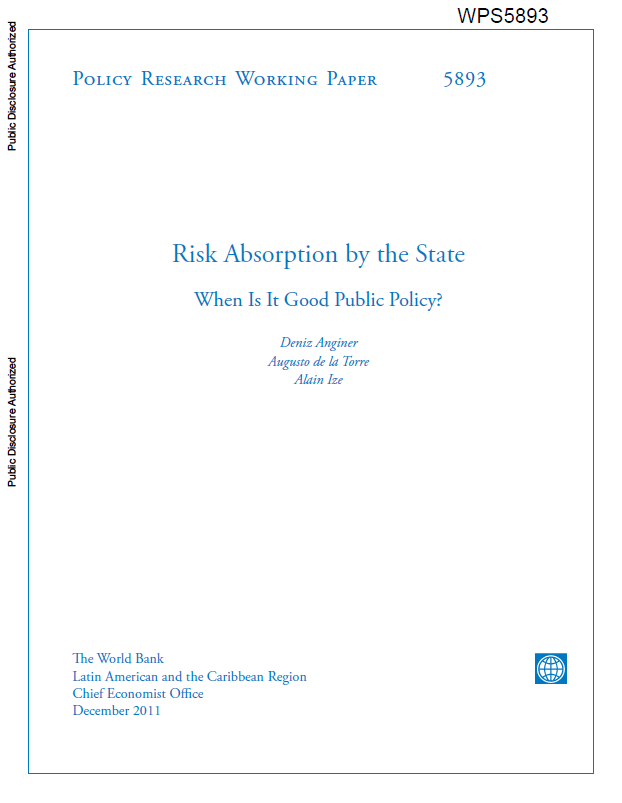Risk Absorption by the State - When Is It Good Public Policy?

The global financial crisis brought public guarantees to the forefront of the policy debate. Based on a review of the theoretical foundations of public guarantees, this paper concludes that the commonly used justifications
for public guarantees based solely on agency frictions (such as adverse selection or lack of collateral) and/or un-internalized externalities are flawed. When risk is idiosyncratic, it is highly unlikely that a case for guarantees can be made without risk aversion. When risk aversion is explicitly added to the picture, public guarantees may be justified by the state’s natural advantage in dealing with collective action failures (providing public goods). The state can spread risk more finely across space and time because it can coordinate and pool atomistic agents that would otherwise not organize themselves to solve monitoring or commitment problems. Public guarantees may be transitory, until financial systems mature, or permanent, when risk is fat-tailed. In the case of aggregate (non-diversifiable) risk, permanent public guarantees may also be justified, but in this case the state adds value not by spreading risk but by coordinating agents. In addition to greater transparency in justifying public guarantees, the analysis calls for exploiting the natural complementarities between the state and the markets in bearing risk.



